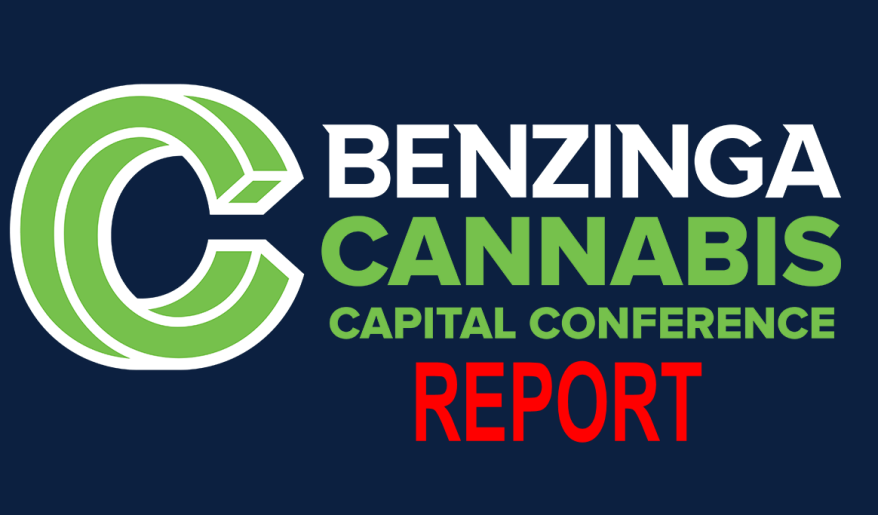“After countless appearances together on panels at events like this,” said Entourage Effect Capital’s Matt Hawkins, “this is the first time I remember Emily (Paxhia, from Poseidon Investment Management) and I opening with bullishness, ever.”
That opening-panel comment captured the spirit that pervaded Benzinga’s Cannabis Capital Conference in Chicago September 27-28, occurring as it did:
- Seven months after Attorney General Merrick Garland told the Senate Judiciary Committee that “I think…with respect to marijuana and policy, that it will be very close to what was done in the Cole Memorandum,” the Obama-era policy that directed federal prosecutors to generally not interfere with state cannabis laws, but which was rescinded during the Trump administration.
- One month after the leak of an August 29 Health and Human Services Department letter to the Drug Enforcement Administration recommending that cannabis be moved from Schedule 1 of the Controlled Substances Act with heroin and quaaludes (high potential for abuse; no accepted medical use in the U.S.; unsafe even under medical supervision) to Schedule 3 with codeine and ketamine (less potential for abuse; accepted medical use; moderate to low potential for physical dependence).
- The very day the Senate Banking Committee approved the SAFER Banking Act, with terms codifying cannabis company access to financial services along the lines of terms approved by the House of Representatives several times in the past but never previously advanced by the Senate.
The HHS letter especially revived the industry’s animal spirits, as evidenced by the 61% gain in the New Cannabis Ventures American Cannabis Operator Index by Benzinga’s opening bell. It was clear in Chicago that, even while investors and companies look to avoid the irrational exuberance that preceded the NCV Index’s 91% crash from 4/1/19 to 8/24/23, investor interest is again spreading beyond day-traders, and operators see burgeoning opportunity from New England to California.
Hawkins noted that he’s “having more conversations with institutional investors than ever,” albeit generally with independents rather than the big public funds that “may require more than safe-harbor legislation and rescheduling” from Washington before entering. Paxhia made the key point that, in contrast to past eras of bullishness, investor mood is more practical now: “It’s much clearer now how these businesses will operate long term,” she said.
Opening-panel moderator Dan Ahrens of AdvisorShares noted the machinations behind the three-part path now opening for more rational cannabis law in DC. “They would not have dropped the HHS letter without collaboration behind the scenes,” he noted, while cautioning, “We don’t know how long DEA will take.”
Licenses in hand and the states’ rights enshrined in the 10th Amendment to protect them, operators are not waiting for DC to act. Ahrens gave a shout-out to TerrAscend executive chairman Jason Wild for getting the company listed on the Toronto Stock Exchange earlier this year, and Curaleaf EC Boris Jordan later said the largest MSO will do the same by year’s end.
Advertisement
On his own keynote session, Wild called the July 4th listing date “a declaration of our independence of the need for federal reform” and ticked off the advantages of TSX listing: allowing the five largest custodian banks to hold its shares for institutional investors; a 140% increase in volume even before the HHS-letter was released; a narrowing of bid/ask spreads; allowing ETFs to buy its directly rather than through swaps.
The brightening investor mood extended to much smaller companies than the MSOs. Hawkins noted that “small operators have had zero capital available to them,” but that is changing. “We want to dabble in venture-capital investments too.”
And venture-backed companies are seizing on the opportunities that have opened up where MSOs have pulled back (California) or are blocked by regulators (New York), to markets which, despite their turbulent starts, will inevitably be huge as the first- and fourth-largest states.
One such recent start-up is Elevation Holdings’, whose EVP Angela Cheng debuted the new company to the national industry on a panel themed “The Evolution of Cannabis Brands from 1996 to 2023”. In a pre-session interview with GCT, she outlined how the company’s executive team of California-market veterans is designing its strategies based on the tough lessons learned after adult-use sales began in 2018. “The key thought looking at the data, was ‘We’ve got to be competitive from the pricing standpoint.’ What we want to do is make sure our products are price sensitive to different sets of consumers so that we can in fact compete with the illicit market.”
There will eventually be a sizable opportunity to bring such California brands to New York, Arcview Group’s Jeffrey Finkle suggested on a “How Investors Can Win in New York” panel. “But the state made it difficult for experienced operators to invest in retail because of the 3-store restriction,” he noted.
That left investor-panelists on a closing “High Returns: Investment Strategies from Cannabis Capital Titans” to explain where the new wave of capital likely to follow federal liberalization with go to: “We’re seeing a huge appetite for retail,” said Spring Leaf Capital’s David Kram. “We’re focusing on retail in our third fund,” confirmed veteran cannabis investor Morgan Paxhia of Poseidon. “We think access to the product is what will be important going forward, rather than supply which is overbuilt.”
Advertisement
A lot of that new money will come from “people outside the industry,” Finkle suggested, “including fund guys, personally” rather than using the public’s money under management by their companies. Given how taxes, both federal, state and municipal have generally skimmed off an inordinate share of industry profits, Hawkins suggested they will be looking for companies that are “not just EBITDA positive but cash-flow positive.”


 Cover Features11 months ago
Cover Features11 months ago
 Cover Features11 months ago
Cover Features11 months ago
 Legal9 months ago
Legal9 months ago
 Branding10 months ago
Branding10 months ago
 Products9 months ago
Products9 months ago
 Branding12 months ago
Branding12 months ago
 Business12 months ago
Business12 months ago
 Podcasts11 months ago
Podcasts11 months ago












